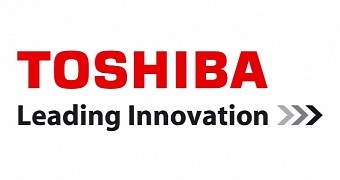Toshiba is one of the greatest providers of storage devices, but it also sells many computers, laptops and tablets in particular, as well as combinations of the two. It seems, however, that the company is not quite satisfied with its current business model.
Indeed, while the way it does business on the PC market may have been fine five years ago, things have changed in the world.
Consumer interest has shifted away from standard computers, while businesses have been emphasizing efficiency and server/cloud more and more with each passing month.
Because of this and Toshiba's wish to maintain a profit for the foreseeable future, the company has decided to change its business model.
Toshiba will restructure its whole PC business
PC means personal computer, but the term can mean something different depending on who you ask. Indeed, personal computer could mean just home systems, but they can also refer to the systems business/office workers use. They are, after all, their personal tools.
Toshiba has chosen the broader meaning of the term. The company intends to expand its product range, launching more workstations and tablet PCs.
It also means to expand the diversity of its partners, as well as promote the Internet of Things, where all devices in a home, from the simplest to the most sophisticated, are interlinked, controllable through the others.
In an IoT household, you can use the on-screen menu of a TV to check on and control a washing machine, refrigerator, etc. Vice-versa should work just fine as well.
Toshiba believes it can deploy both IoT devices and IoT interconnect technologies, not just for consumer homes but for business domains as well. Cloud, healthcare, social infrastructure – Toshiba intends to have a finger in every pie.
The intended timeline
Toshiba wants to move from its current business model to the next by the end of the fiscal year 2014, which is well into calendar year 2015. It also hopes to bring down the number of sales bases around the world from 32 to 12. This way, it will be able to concentrate resources in developed countries, where it can get good sales out of the business-to-business sector.
Meanwhile, the PC global workforce will go down by 900 employees, which corresponds to 20% of the total PC business headcount worldwide (not including manufacturing).
Since the PC market is expected to grow slowly, and then even start to fall, this move is not at all unexpected. It's not clear if the corporation will fire all those people or if some will just be transferred to other divisions though.

 14 DAY TRIAL //
14 DAY TRIAL //